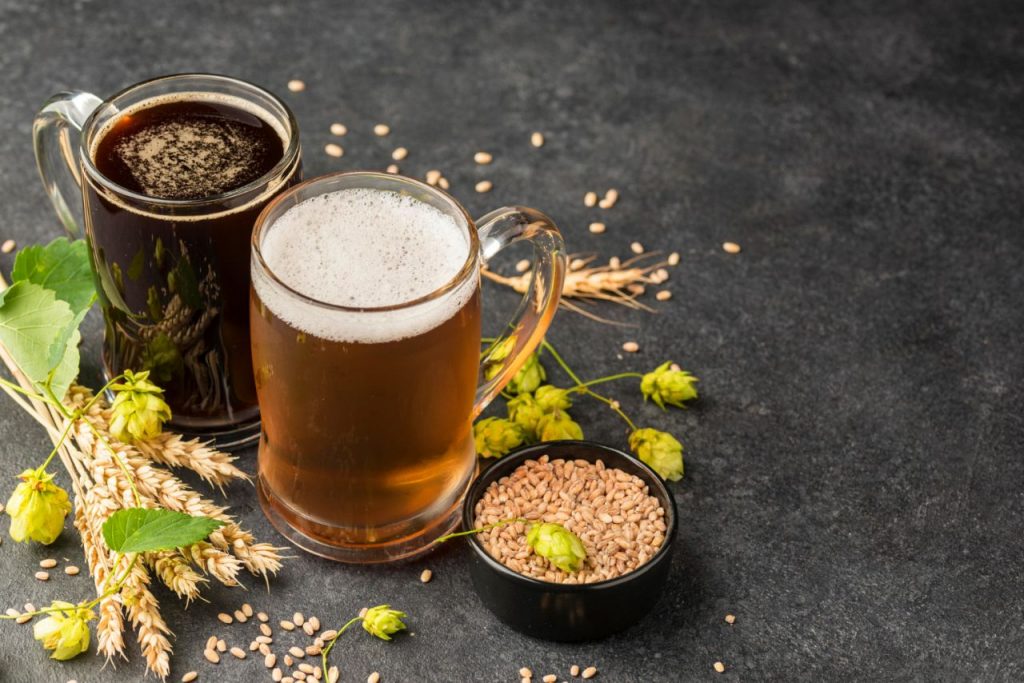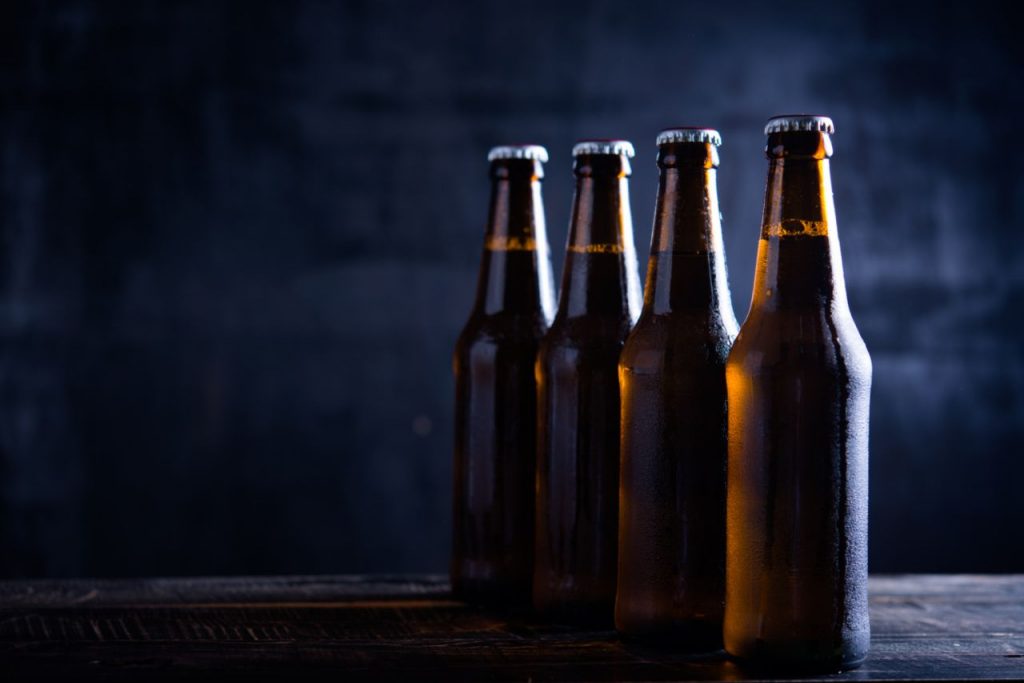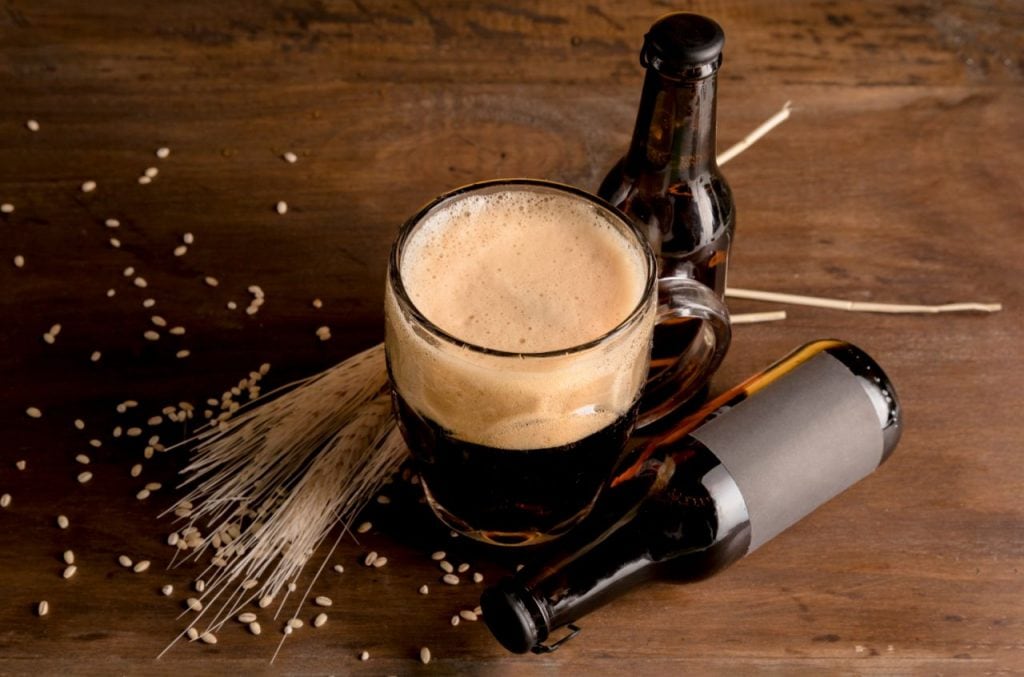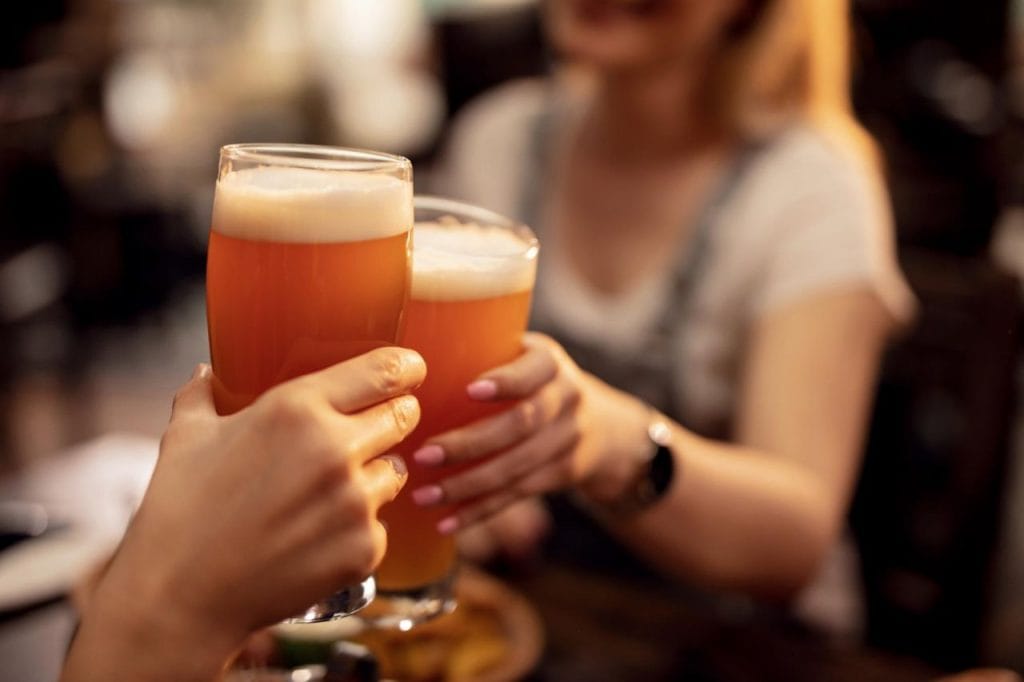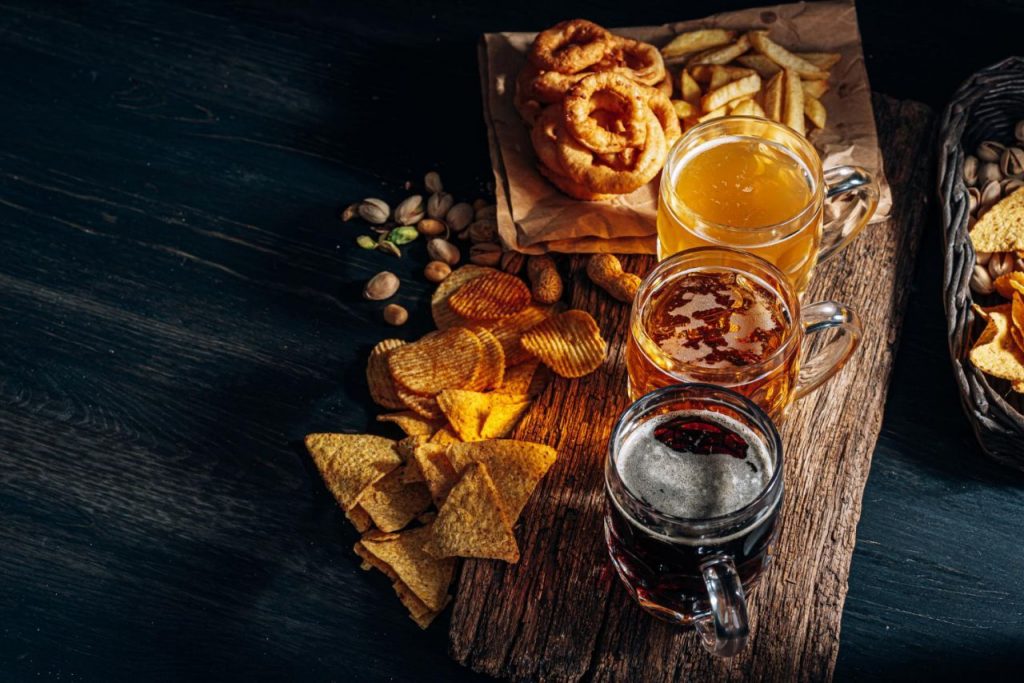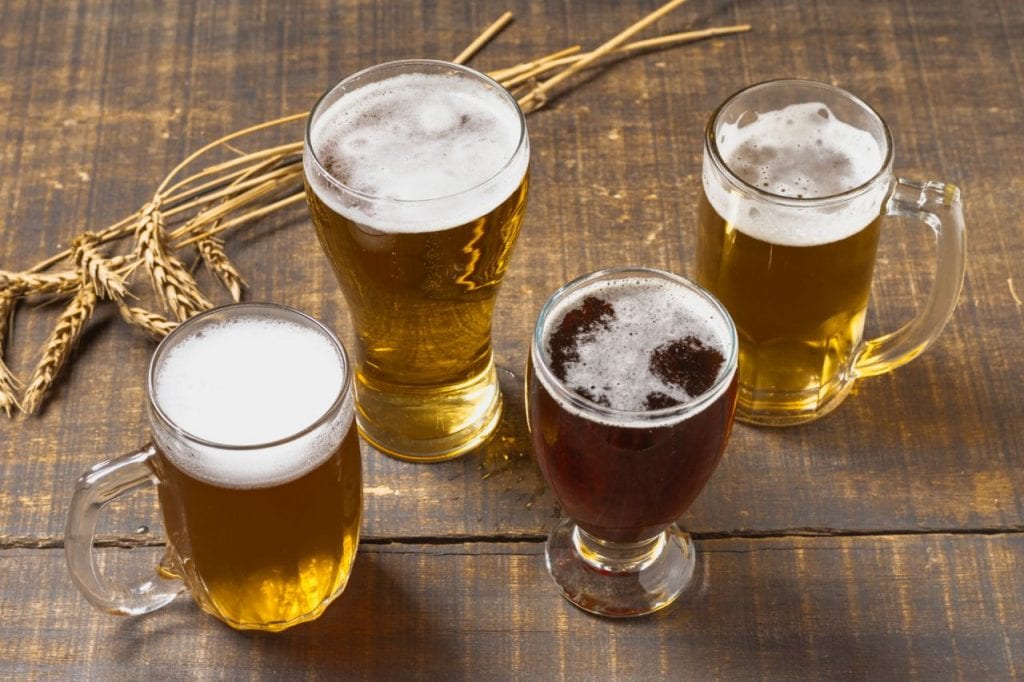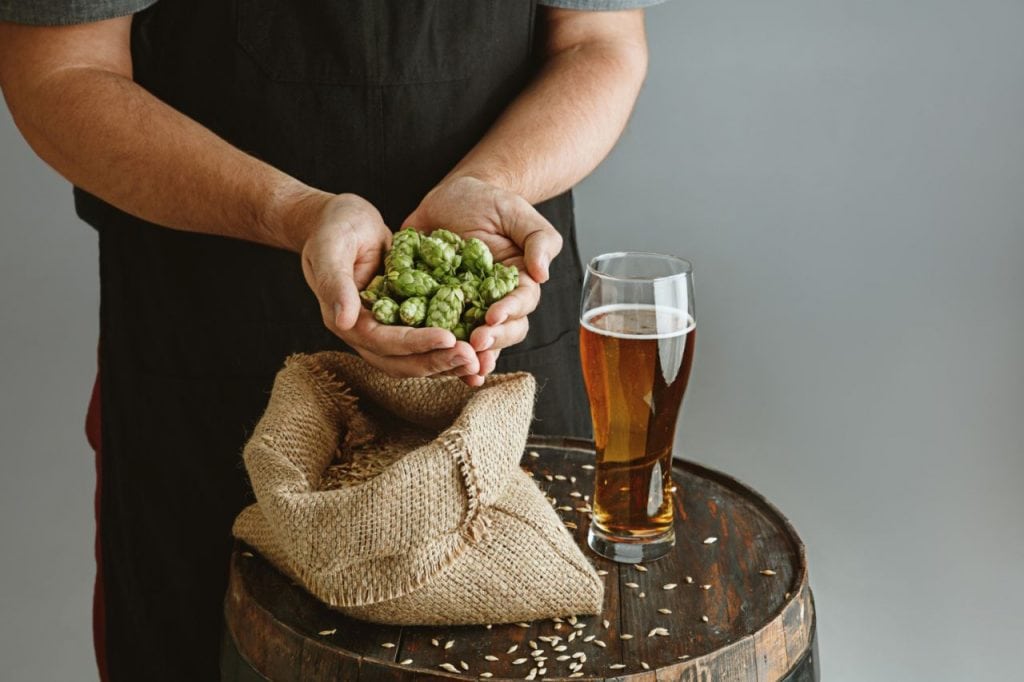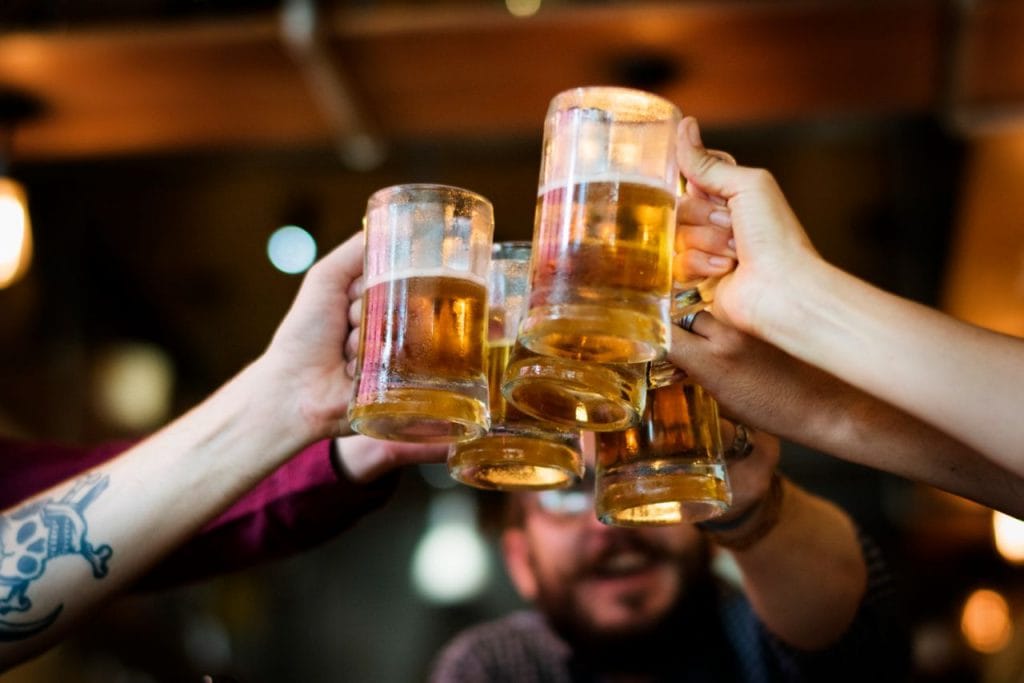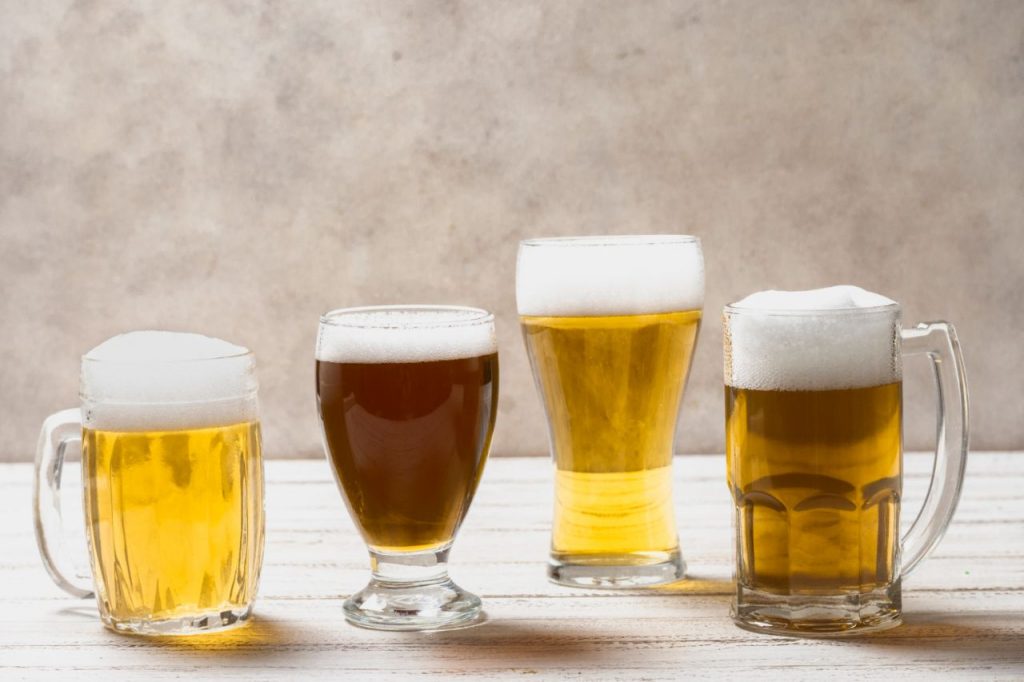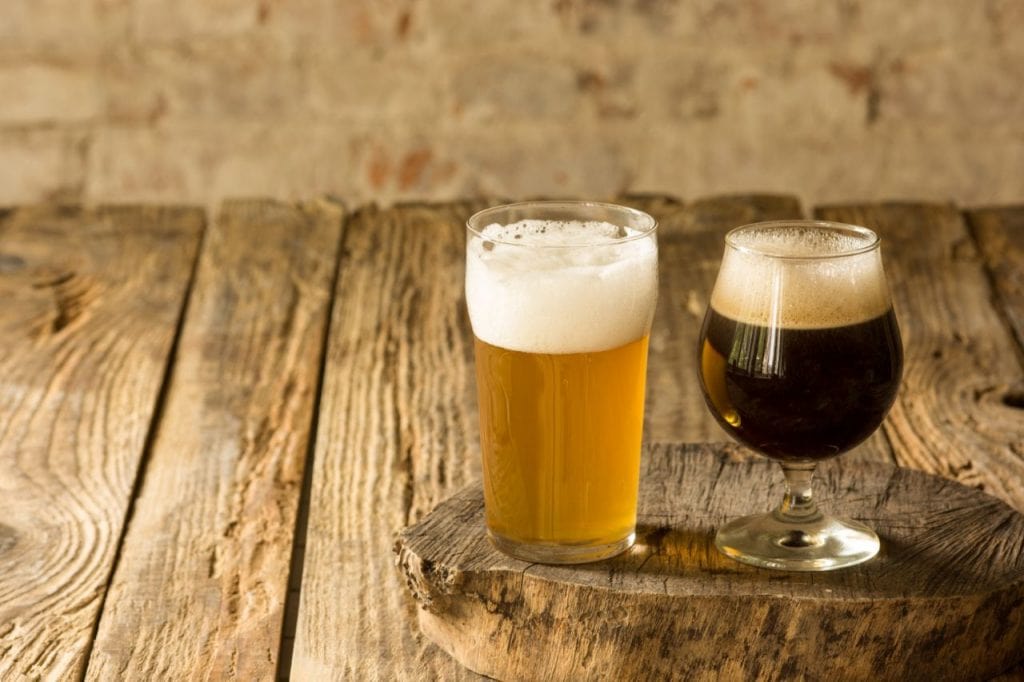Is it OK to drink leftover beer? We'll explore the science behind beer spoilage, discuss the different factors that can affect its longevity, and give you some tips on how to store it properly. So grab a cold one (even if it's leftover!), and let's get started! And remember to stay until the end for a special surprise that'll have you raising your glass in celebration. Cheers!
Don’t forget to grab a drink at Tar Barrel! With our range of craft beers, ciders and spirits - all made on the Distillery Mornington Peninsula using only the freshest ingredients – you’re sure to find something amazing. So come join us at Tar Barrel for an experience like no other!
How Long Can An Open Bottle Of Beer Stay Out?
Beer has a shelf life of around two days before it loses flavour significantly. Even after being refrigerated, a beer sitting out for one to two days won't have a flawless flavour, but it will still be drinkable. Beer is considered "flat" when its carbonation level rises above that point.
Its absence of flavour is what sets flat beer apart from regular beer. Flat beer lacks the distinctive bitterness and sharpness that define good beer. A stale beer lacks carbonation and has a flat, unpleasant flavour. As a result, a bad flavour could develop in the beer.
While we've set a two-day cutoff for this beer, remember that improper storage can hasten its spoilage. Likewise, a day in the sun will result in a flat beer because the beer's flavour degrades quickly when exposed to light.
Can I Drink 7-Day-Old Open Beer?
Seven-day-old beer should not be consumed for safety reasons. The beer quickly loses its quality after being opened because of its fragility. When beer oxidises, it loses its malt and hop flavour, giving it a cardboard or wet-dog-fur flavour and throwing off its equilibrium.
Several problems can arise if beer is left out in the open for too long, not the least of which is contamination by bacteria and other microbes. Thus, a beer that has been sitting out for more than a week should be avoided.
Can Beer Be Saved After Being Opened?
A beer can be salvaged after being opened, yes. However, the beer should be chilled from the start. Beer kept at a cool temperature has its oxidation process slowed, extending its shelf life.
Beverage canisters or other airtight containers are other options for preserving open beer. Beer may be stored well in recycled plastic soda bottles. Beer stored in an airtight container has been protected from the elements that can cause it to go bad: oxygen, light, and bacteria.
Moreover, a few drops of sterile beer salts can be added to the beer to assist in establishing an environment where germs cannot thrive. More prone to oxidation than lighter beers, stronger alcoholic brews benefit from adding beer salts.
Beer can be stored properly for up to a week after being opened before it starts to lose flavour and quality. However, when the beer has been opened, it's important to test for indicators of spoiling, such as an unpleasant flavour, a musty smell, or visible mould.
Beer that exhibits any of these characteristics should be thrown away.
Can I Get Half A Beer To Drink Later?
A half-beer can be saved for later. First, keep half the beer fresh by pouring it into a different glass and sealing it with the bottle cap or lid. It's possible to save the beer for later use by placing it in resealable bags or containers.
Keep in mind that beer has a very long shelf life when refrigerated. Beer can also be stored in a growler or other dedicated container, though doing so will necessitate periodic upkeep and cleaning to prevent the development of sour flavours.
Beer stored for more than a few days requires careful monitoring to prevent spoiling and the development of sour flavours.
Is It Bad To Drink An Old Beer That Has Been Opened?
With time, the beer loses its flavour and quality, so it's best to drink it soon after opening. While most beers can still be consumed safely after a certain amount of time has passed, the quality may have declined.
Alcohol does not go bad, but beer's flavour, natural carbonation, and foamy head can be damaged by exposure to oxygen and UV light. Therefore, the standard recommendation for beer is to drink it within three to four months of opening.
While drinking stale beer might not make you physically ill, it can ruin your sense of taste and leave you with a stomachache. Beer tastes best when stored in a cold, dark place and when the can or bottle is properly sealed after being opened.
What Can I Do With Leftover Open Beer?
It's a bummer when there's open beer lying around that needs to be disposed of. Fortunately, there are a few options for the leftover beer.
Making beer cheese is an easy option. This is a versatile appetiser that is excellent with crackers, celery, or carrot sticks. Beer cheese is made by mixing cheddar cheese and cream cheese with garlic, red pepper flakes, spring onions, Worcestershire sauce, salt, and pepper in a mixing bowl until the ingredients are smooth and spreadable.
Beer soup is a great alternative to using beer in cooking. Traditional beer soup calls for the beer to be simmered with celery, potato, plus onions until the vegetables are tender.
Once the vegetables are tender, you can blend the soup to a smoother consistency or add cream and butter.
Finally, you can prepare beer-battered fish with any remaining beer. Make an unforgettable feast out of your beer stash by following this recipe. First, make a tempura batter with flour, beer, and other ingredients, then use it to coat your fish before frying it in oil.
Last but not least, there are a variety of creative uses for beer that has been sitting about for a while. For example, you may put that leftover beer to good use by making beer soup, cheese, or beer-battered fish.
Can Beer Go Bad If Left Out In The Fridge?
Beer that has been opened and stored in the fridge might need to be fixed. When beer is left out in the open, oxidation begins to take place, altering the beer's flavour. The likeness between this flavour shift and the odour of a skunk has led to it being called a "skunked" taste.
Beer that has been opened to the air should be drunk within a week, as after that point, it is likely to have a good flavour no longer.
Beer tastes best when stored in a cool, dark place after being opened, and an airtight container is the best method. Also, once opened, it needs to be consumed promptly before it goes bad from oxidation.
Because beer loses its flavour more quickly in individual servings than in a whole can or bottle, it's a good idea to pour a few ounces into a cup.
When Beer Is Left Open, Does The Alcohol Evaporate?
The pure alcohol contained in the water base does as well. While water and alcohol evaporate in the presence of air, alcohol is far more volatile and does so much more quickly. The open beer loses almost 30 per cent of its alcohol content overnight under typical temperature and humidity conditions.
The rate of evaporation increases in unfavourable conditions, such as when the temperature is high, and the humidity is low. Similar to how evaporation is slowed in refrigerators, condensation occurs when temperatures and humidity levels are low.
Could Bacteria Grow In Beer?
Yeast and bacteria can indeed multiply in beer. Due to the variety of carbohydrates and proteins included in beer, a wide variety of bacteria may survive and thrive in it. Fewer organic components in lagers and Pilsners could promote bacterial development, but there are more in ales, malts, and black beers.
The growth of microorganisms such as Lactobacillus, Pediococcus, and Brettanomyces can cause off-flavours in beer. Beer can also be tainted by spoilage bacteria like Bacillus and Clostridium, which can lead to unpleasant flavours, turbidity, and haze.
There are many potential routes of contamination, including those mentioned above (inadequate washing and sanitation during the brewing process) and direct contact with diseased surfaces, hands, and air. Beer must be sanitised and carefully monitored during brewing to avoid bacterial infection.
Can Mould Grow In Beer?
Beer can indeed go stale if exposed to the wrong conditions. Mould thrives in damp, dark places. Therefore, beer should be stored in a cool, dark place away from direct sunlight and heat to prevent mould formation and other spoiling organisms.
Beer's flavour and aroma can be compromised by mould growth if left to sit at room temperature for too long. Beer exposed to polluted air must be kept in an airtight container.
Beer bottles should be inspected for signs of spoilage before being opened and thrown away if they appear or smell off.
Conclusion
Beer that has been opened can be kept by placing it in the refrigerator or another airtight container and waiting until it is cold enough to drink. Beer, once opened, can be kept for up to a week if stored properly; nevertheless, it should be checked for signs of spoilage and discarded if present.
Any open beer that won't be consumed immediately can be stored in resealable bags or containers for later. Due to the oxidation process, beer can go bad if left out in the open, so it's best to keep it in a cool, dark spot until it's ready to be consumed. Beer should be kept out of the light and away from heat and humidity to prevent contamination from germs and mould.
Content Summary
- Beer has a shelf life of around two days before it loses flavour significantly.
- Even after being refrigerated, a beer sitting out for one to two days won't have a flawless flavour, but it will still be drinkable.
- Its absence of flavour is what sets flat beer apart from regular beer.
- While we've set a two-day cutoff for this beer, remember that improper storage can hasten its spoilage.
- Likewise, a day in the sun will result in a flat beer because the beer's flavour degrades quickly when exposed to light.
- Seven-day-old beer should not be consumed for safety reasons.
- The beer quickly loses its quality after being opened because of its fragility.
- Several problems can arise if beer is left out in the open for too long, not the least of which is contamination by bacteria and other microbes.
- Thus, a beer that has been sitting out for more than a week should be avoided.
- A beer can be salvaged after being opened, yes.
- Moreover, a few drops of sterile beer salts can be added to the beer to assist in establishing an environment where germs cannot thrive.
- More prone to oxidation than lighter beers, stronger alcoholic brews benefit from adding beer salts.
- Beer can be stored properly for up to a week after being opened before it starts to lose flavour and quality.
- However, when the beer has been opened, it's important to test for indicators of spoiling, such as an unpleasant flavour, a musty smell, or visible mould.
- Beer that exhibits any of these characteristics should be thrown away.
- A half-beer can be saved for later.
- First, keep half the beer fresh by pouring it into a different glass and sealing it with the bottle cap or lid.
- It's possible to save the beer for later use by placing it in resealable bags or containers.
- Keep in mind that beer has a very long shelf life when refrigerated.
- With time, the beer loses its flavour and quality, so it's best to drink it soon after opening.
- Therefore, the standard recommendation for beer is to drink it within three to four months of opening.
- Beer tastes best when stored in a cold, dark place and when the can or bottle is properly sealed after being opened.
- It's a bummer when there's open beer lying around that needs to be disposed of.
- Making beer cheese is an easy option.
- Beer soup is a great alternative to using beer in cooking.
- Make an unforgettable feast out of your beer stash by following this recipe.
- Beer that has been opened and stored in the fridge might need to be fixed.
- When beer is left out in the open, oxidation begins to take place, altering the beer's flavour.
- Beer tastes best when stored in a cool, dark place after being opened, and an airtight container is the best method.
- The rate of evaporation increases in unfavourable conditions, such as when the temperature is high, and the humidity is low.
- Similar to how evaporation is slowed in refrigerators, condensation occurs when temperatures and humidity levels are low.
- Yeast and bacteria can indeed multiply in beer.
- Due to the variety of carbohydrates and proteins included in beer, a wide variety of bacteria may survive and thrive in it.
- Beer can also be tainted by spoilage bacteria like Bacillus and Clostridium, which can lead to unpleasant flavours, turbidity, and haze.
- There are many potential routes of contamination, including those mentioned above (inadequate washing and sanitation during the brewing process) and direct contact with diseased surfaces, hands, and air.
- Beer must be sanitised and carefully monitored during brewing to avoid bacterial infection.
- Beer can indeed go stale if exposed to the wrong conditions.
- Mould thrives in damp, dark places.
- Therefore, beer should be stored in a cool, dark place away from direct sunlight and heat to prevent mould formation and other spoiling organisms.
- Beer's flavour and aroma can be compromised by mould growth if left to sit at room temperature for too long.
- Beer exposed to polluted air must be kept in an airtight container.
- Beer bottles should be inspected for signs of spoilage before being opened and thrown away if they appear or smell off.
Frequently Asked Questions
The answer to this question depends on several factors, such as the type of beer, its alcohol content, and the storage conditions. Generally, unopened beer can last up to six months, while opened beer can last up to a few days to a week in the fridge.
Yes, you can drink flat beer, but it may not taste as good as the fresh beer. Carbonation gives beer its refreshing taste and mouthfeel, so flat beer may seem a bit bland.
Beer can go bad, just like any other perishable food item. Signs of spoilage include a sour or skunky smell, a strange taste, or a cloudy appearance. If you notice any of these signs, it's best not to drink the beer.
Yes! Leftover beer can be used in cooking to add flavour to various dishes. For example, you can use beer to make beer-battered fish or add it to a stew for a richer flavour.
If you have a leftover beer, it's best to store it in the fridge to slow down the oxidation and maintain its freshness. You can also reseal the bottle or can with a tight-fitting lid or wrap the cap with cling wrap to prevent air from getting in.




